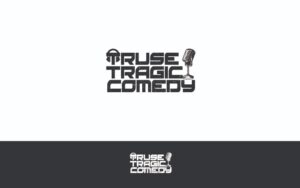
Photo via 10th Annual Latin American and Spanish Film Week Facebook page
As jittery as a June bug in a puddle of kick-ass coffee, as excited as a circuit overcharged with electrical current, I struggled to sit still when the music from Indestructible: The Soul of Salsa Music began to play.
The film was shown on September 20th at Cinecenta as part of the 10th Annual Latin American Film Festival. Festival-goers were asked to slide into unused seats next to them to make space for the large crowd.
Indestructible follows Diego El Cigala, an internationally renowned gypsy-flamenco singer, as he sets out to create his first salsa album in memory of his late wife, Amparo Fernández.
Cigala travels from San Juan, to Havana, up to New York, down to Miami, and across the country to California to find the best musicians in salsa. Members of the Buena Vista Social Club and the Fania All-Stars are among the stars to appear in the film, which provides a substantial amount of information on the origins of salsa music.
Everywhere Cigala goes, his voice shines. The musicians featured in the documentary are as shocked as I was by Cigala’s virtuosity. In every city some musicians say, “[Diego] must be from here!” Others insist he is a citizen of the world whose physical presence and vocal clarity belongs to no one place but rather encapsulates the best of the cultures he visits.
Indestructible presented possibly the best soundtrack that Cinecenta will feature this season. From the first frame, the music is extraordinary. Cigala takes us to the streets of the Dominican Republic where drummers play on wooden crates with leather draped over them. They tell us that playing the salsa rhythms on found objects, such as crates, is how the genre started.
“It is a music from the slums,” says one of the drummers. I would rather listen to that drummer and that crate than any score by Zimmer, Shore, or the rest of the bunch. If you’re still not convinced, Cigala’s album Indestructible is available for streaming.
The music is nocturnal. It is an external expression of the soul. There is no separation between the song and dance, the melody and the rhythm, the people and the music. The songs are improvisational in their composition and intellectual in their presentation.
Percussion takes centre stage within the music. Cigala tells viewers that, “without percussion, there is nothing.” The drummers pound out rhythms on timbales, claves, rumbas, shakers, and cowbells which would have even the most conservative viewer tapping their foot — if they could find the beat. The rhythms spill over from one bar to the next and all of the musical phrases exist somewhere in between the subdivisions of straight sixteenth notes and triplets. Rhythm is a language and salsa drumming is poetry.
When there are no drums around, Cigala and group of Dominican musicians are able to enchant with just their hands, feet, and voices. They stand in a circle and pound rhythms into the floor. As they dance, smile, and sing melodies of joy, it is clear that salsa music is a tradition, one that cannot be learned in a 14-week course at the local recreation centre.
Dan Russek, organizer of the film festival and assistant professor in Hispanic studies here at UVic, started the festival 10 years ago. He said, “what keeps this going is the response of the public, the community that comes and is interested in these movies.” He also attributed the festival’s success to the purpose behind the selection of the films.
“We don’t call this a ‘film festival’ because film festivals have big expenses and money and sometimes they bring, in my opinion…some movies, that might not be as good.” He continued, “For some people, cinema is just for entertainment. I think that is okay, [but] we want to do something else. We want to go beyond entertainment. Stuff that will make people think. And sometimes you can be entertained, but also be challenged.”
After the film, guests dressed in punchy red dresses and powerful blue suits made their way to Vertigo for a party of equally epic proportions. The music was continued into the evening by Pablo Cardenas & The West Coast Cuban All Stars.






